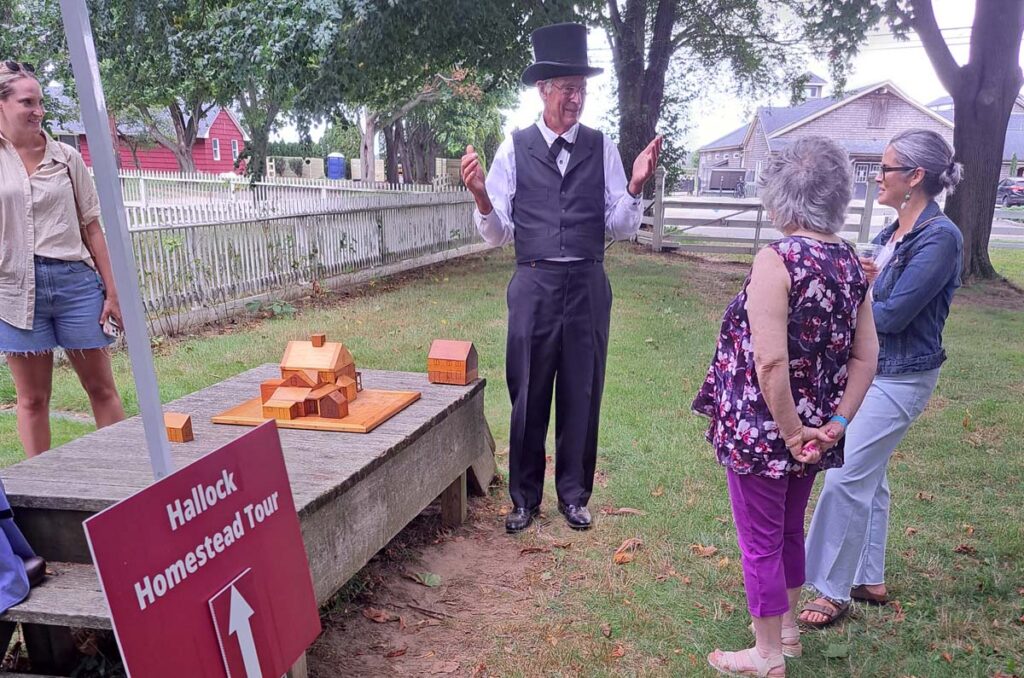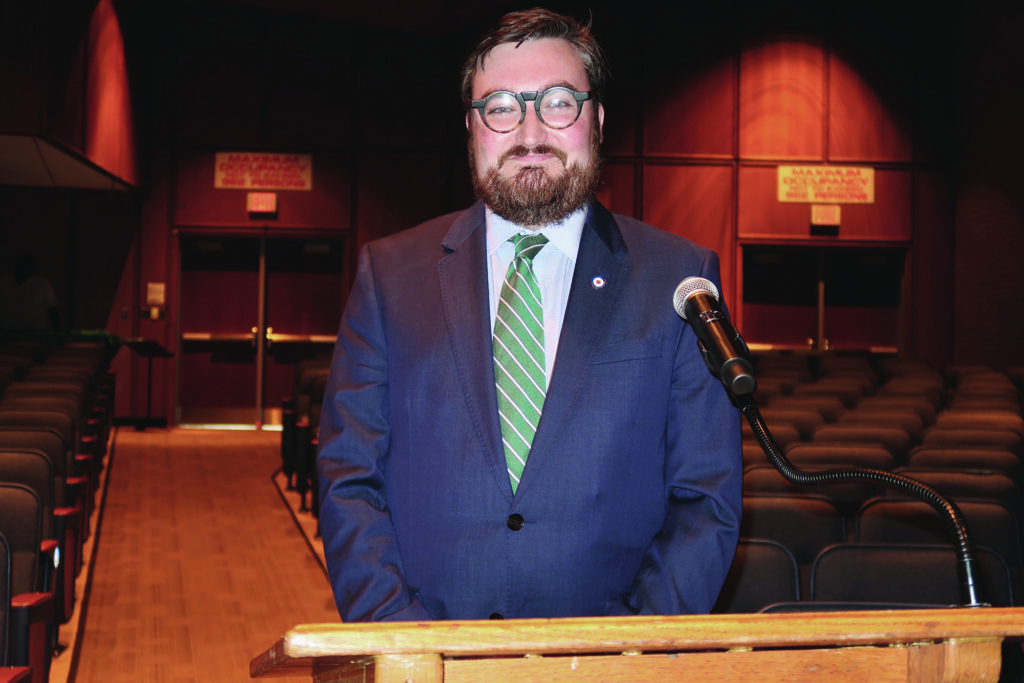SWR’s Kevin Nohejl wins earth science teacher award

Kevin Nohejl’s career path had looked so clear-cut, so obvious that what he would become hardly seemed to be a question when he was younger. His father, William Jr., was a farmer, his late grandfather, William Sr., was a farmer, and Mr. Nohejl himself seemed destined to become a farmer.
“I’ve always loved agriculture,” Mr. Nohejl said. “I’ve always loved farming. I’ve always loved being outdoors. It’s really all I wanted to do.”
Life, however, has a way of throwing unexpected curves one’s way. And so it was for Mr. Nohejl after he graduated Hofstra University with a bachelor of science degree in geology. At that point, the question for him became now what?
Mr. Nohejl’s father and grandfather were business partners, growing sod and vegetables. The sod operation was Imperial Sod Farms in Wading River and Yaphank. The vegetables were grown in Wading River and Aquebogue, behind the house that Mr. Nohejl grew up in and currently lives in.
It turned out, however, that continuing in the family business, as much as he loved it, wasn’t going to work out. “The economics of it, the cost of the land, the business just couldn’t support me coming into the business,” he said.
Someone suggested Mr. Nohejl give teaching a try. That’s how he fell in love with another profession. Instead of cultivating crops, he embarked on a career cultivating young scientific minds.
That career — 19 years as an earth science teacher at Shoreham-Wading River High School — reached a milestone recently when Mr. Nohejl, 42, was selected as a New York State winner of the National Association of Geoscience Teachers Eastern Section’s Outstanding Earth Science Teacher award.
“It was humbling,” he said. “I have honestly never won an award like this before. As a matter of fact, the first time I got notification, I thought it was spam, like a joke.”
Heralded for his passionate approach to teaching, Mr. Nohejl was recognized for leading SWR students in the Student Spaceflight Experiments Program, a competition that allows student teams to design a scientific experiment to be performed aboard the International Space Station. A proposal by SWR fifth-graders was selected.
The experiment, comparing the affects of microgravity with regular gravity, is linked to a Dec. 2 launch date for a SpaceX rocket to the space station.
Originally, the students were to have an opportunity to sit in the VIP section at Kennedy Space Station in Cape Canaveral, Fla., to watch the launch, but that’s not feasible now because of the COVID-19 pandemic. On the plus side, Mr. Nohejl said, “Everyone who participated in this project is in the history books as part of the human space program.”
Mr. Nohejl’s bond with the soil remains strong. He holds a state pesticide applicator’s license and — along with his daughters, Jillian, 9, and Karlie, 8 — tends to a 7,000-square-foot garden in their backyard.
Mr. Nohejl has brought his environmental/agricultural interest into the classroom. He teaches a class called Long Island Sustainability that has received grants from Cornell University and the Suffolk County Soil and Water Conservation District. A school project has emerged in which fresh food grown at the school will be donated to area food banks. The high school received a charter last year to become a chapter of the New York State Future Farmers of America.
“We are extremely proud to have Mr. Nohejl recognized with this honor,” SWR superintendent Gerard Poole said in a press release. “His enthusiasm and creative teaching skills extend beyond the classroom, and he is well-regarded in his efforts to expose the dynamics and intricacies of local and global sustainability and agricultural issues to our students.”
Mr. Nohejl has always taught earth science. Why earth science?
“For me, earth science is tangible, it’s things you can see and touch and experience, and it answers a lot of the, not the hows, but the whys,” he said. “Why does it rain? We know how it rains. Water falls from the sky. But the real question is why does it rain? And earth science, to me, gets kids thinking about the whys, not so much the hows.”
Mr. Nohejl said he would not have won the award without the support of Dr. Amy Meyer, the district’s director of science, technology, engineering and math.
When he was finally convinced that the notification emails he received of the award were genuine, Mr. Nohejl said, “I passed a joke along that I must have been the only person nominated in the state because I don’t think I deserve it, but I’m definitely humbled by it.”
Not bad for a farmer-turned-teacher.








